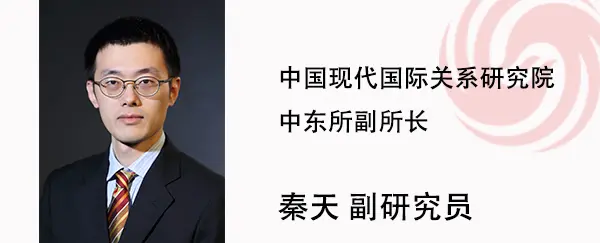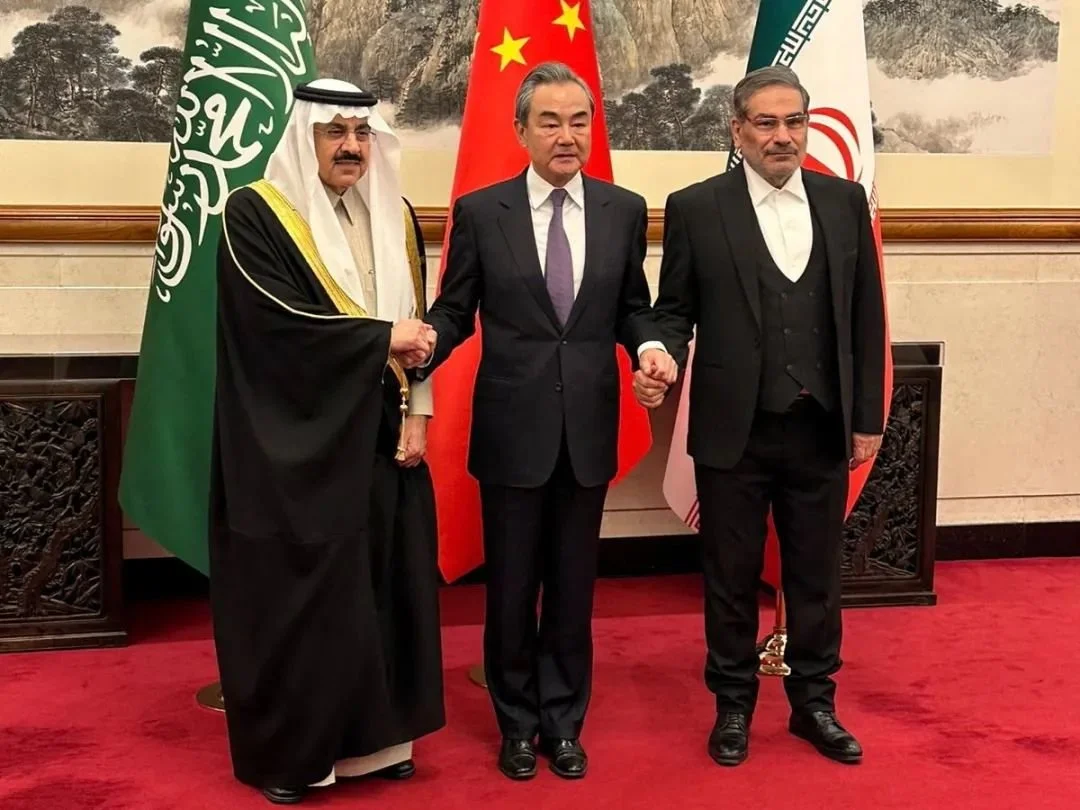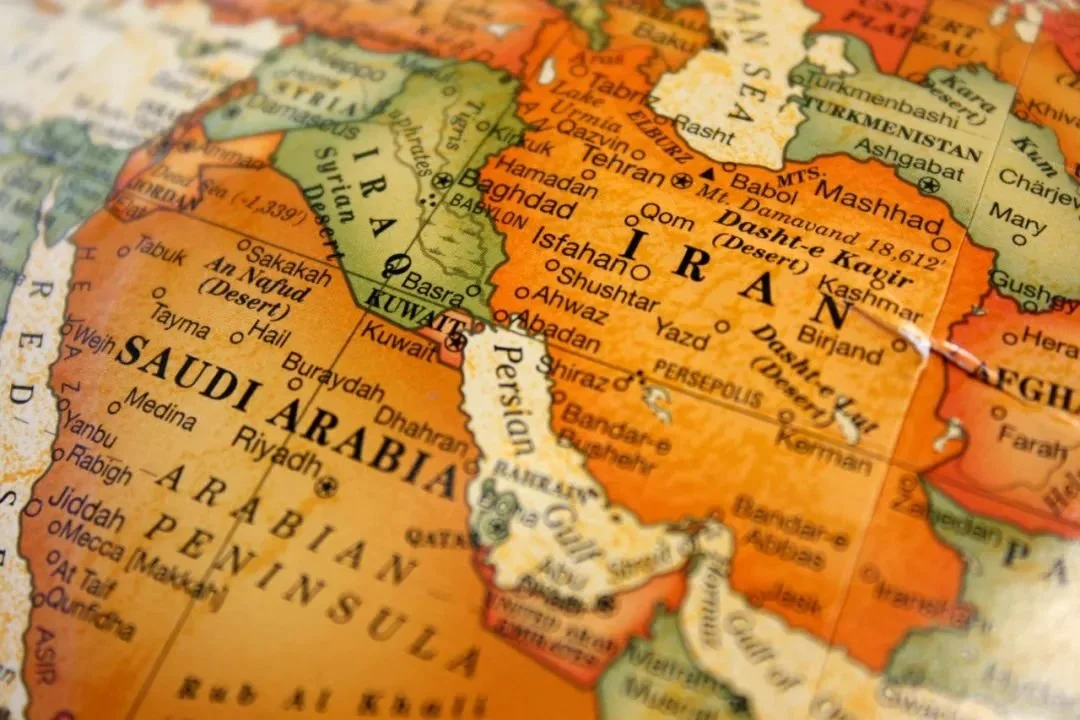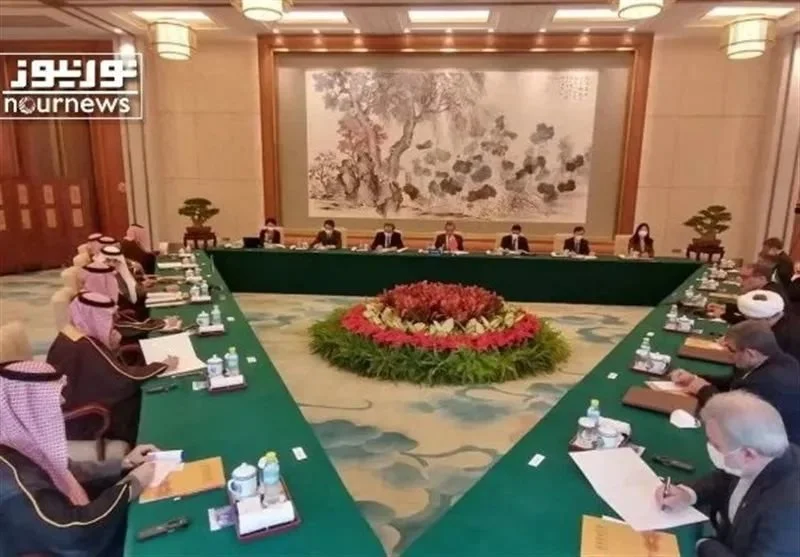風蕭蕭_Frank
以文會友沙伊複交!為何中國斡旋能夠成功?中東歐美會有何反應?
鳳凰大參考 2023年03月11日 07:59:10 來自北京市
編者按:3月10日晚上,沙特阿拉伯-伊朗北京對話取得重要成果,斷交長達7年的宿敵恢複外交關係。如何看待兩國複交的意義?中方在其中做了哪些工作?未來的沙伊關係以及中東局勢會迎來什麽變局?《鳳凰大參考》特邀中國現代國際關係研究院 中東所副所長秦天解讀。

對話|屈功澤 編輯|侯逸超

▎3月10日晚,中國沙特伊朗在北京發表三方聯合聲明,沙特伊朗宣布同意恢複外交關係。
《鳳凰大參考》:這一次伊朗和沙特兩國恢複外交關係,如何評價這其中的意義?您又是如何看待這一次兩國複交的時機?
秦天:此舉具有積極且重大的意義。兩個層麵。一是全球層麵。去年以來受烏克蘭危機等因素影響,國際格局中生戰生亂的傾向在增長,天下不太平的感覺在增強。沙伊一對老冤家此番握手言和,再一次向全球證明了和平的魅力,為全世界的和平穩定注入了正能量。
二是地區層麵。沙特伊朗的競爭是近年來中東地區的主要矛盾之一,牽涉到多個地區國家,影響波斯灣航運的安全。兩國鬥則中東難安,兩國和則中東會更安全穩定。2021年以來該地區主要國家之間的交往呈現緩和趨勢,此次複交顯然會增進和延續上述勢頭。
時機上,其實過去兩年來沙伊兩國已經進行了多輪對話,這次可謂水到渠成。兩國現在在中國的斡旋下於北京聲明複交,時間又和我們正在召開的“兩會”重合在一起,可以說,這也是在中國的內政之外,我們於外交方麵也收獲的一個好消息。
《鳳凰大參考》:我們知道伊朗沙特兩國之間的關係一向波折不斷,不僅有政治上的糾葛,其背後還有延續了千百年之久的宗教和曆史因素。您認為這對中東“宿敵”在中國斡旋下複交之後,雙邊關係還會麵臨什麽樣的挑戰?
秦天:就像斷交解決不了兩國的所有問題一樣,複交也不可能完全解決問題。複交後繼續維係兩國關係的難點有二:
一是地區影響力的爭奪。兩國在也門、敘利亞、巴以等問題上都有不太一致甚至相左的觀點,比如在也門就扶植不同軍政勢力。在地區影響力的爭奪上,沙伊可以緩和,但不可能完全消停。
二是經濟相互依賴太少。兩國都是石油出口國,相互之間的貿易人員往來很少。沒有經濟利益的互聯,就容易使兩國關係疏遠。

▎中東區域示意圖。
即便如此,雙方既然恢複外交關係,總體的勢頭一定也會向積極的方向邁進,以上的這些問題,我們也可以留出一些時間,期待下一步是否能有比較好的解決方案。
《鳳凰大參考》:這一次大家最關注的,還是中國在這其中起到的至關重要的作用。中共中央政治局委員、中央外辦主任王毅也表示,這是對話的勝利,和平的勝利。中國在這其中做了什麽樣的工作,為什麽中國的倡議得到了兩國的積極響應?
秦天:一是有先進理念的指引。聯合聲明中提到這次斡旋沙伊複交是應習主席的有關倡議而做出的,這就是我方元首外交的引領作用。這些年,習主席提出了“全球安全倡議”。這一倡議具體到中東,就體現為我方提出的諸如“構建中東安全新架構”“設立海灣地區多邊對話平台”等等。其中所堅持的勸和促談、維護和平等理念是獲得沙特伊朗兩國認可的。
二是有積累和鋪墊。中國長期以來在沙特伊朗之間就奉行平衡政策,不點火澆油,也不拉偏架,和兩國同步發展各領域交往,也是兩國的第一大貿易夥伴和第一大石油進口國。中國贏得了雙方的信任,和雙方都能說得上話。去年底以來,習主席訪問沙特,接待伊朗總統到訪,和兩國領導人進行了充分有效的前期溝通,也為此次斡旋打下了堅實的基礎。

▎沙伊北京對話現場。
《鳳凰大參考》:那麽對於兩國複交之後的中東局勢,以及域外的其他大國對此事件的反應,您有一個什麽樣的預判?
秦天:對於中東多數國家而言,不管其更親近沙特還是伊朗,是遜尼派還是什葉派,其實都不同程度受到沙伊敵對的外溢和負麵影響,因此,對於此次複交,區域內的國家一定會持歡迎態度。
其他主要大國如歐盟國家、俄羅斯還有印度等也會對複交持積極態度,尤其是歐印在中東都有能源、商貿乃至人員利益,希望中東和平穩定、沙伊關係緩和。美國拜登政府目前聚焦烏克蘭危機等事務,不希望中東再生事端,對沙伊複交應當也不至反對。
▎據報道,沙特要求美國提供安全保障和援助建立其民用核計劃,作為與以色列關係正常化的條件。圖自以色列《國土報》
唯一的例外可能是以色列。以色列和伊朗關係極為對立,以色列的政策是盡量孤立伊朗,沙特更是以色列拉攏並孤立伊朗的重要對象。此次複交,顯然會令以色列感到一些被動,難免會產生不滿情緒。
Saudi Arabia, Iran Restore Relations in Deal Brokered by China
Accord marks diplomatic victory for Beijing in a region where U.S. has long dominated geopolitics
RIYADH, Saudi Arabia—Iran and Saudi Arabia agreed to re-establish diplomatic relations Friday in a deal mediated by China, ending seven years of estrangement and jolting the geopolitics of the Middle East.
The deal signals a sharp increase in Beijing’s influence in a region where the U.S. has long been the dominant power broker, and could complicate efforts by the U.S. and Israel to strengthen a regional alliance to confront Tehran as it expands its nuclear program. It comes as the U.S. has been trying to broker a peace deal between Saudi Arabia and Israel, an effort now clouded with uncertainty.
China in recent years has built closer economic ties with Iran and Saudi Arabia, both of which are important suppliers of oil to the world’s second-largest economy. But this bridge-building effort is the first time Beijing has intervened so directly in the Mideast’s political rivalries.
On Monday, March 13, at 9:30 a.m. ET, join WSJ's World Coverage Chief Gordon Fairclough, in conversation with China Bureau Chief Jonathan Cheng and Washington Senior News Editor Charles Hutzler, for a conversation about the fragile state of the U.S.-China relationship and where things go from here.
It comes at a time when relations between the U.S. and Saudi Arabia, long aligned with Washington, have grown strained over America’s diminishing security guarantees and Riyadh’s decision to cut oil production to keep crude prices high during Russia’s war in Ukraine.
The agreement between Iran and Saudi Arabia was hammered out behind closed doors in Beijing between top officials of the two countries, they said in a joint statement. Chinese leader Xi Jinping raised the idea of the talks most recently during a state visit to Riyadh in December, according to people familiar with the matter.
As part of the deal, Iran pledged to halt attacks against Saudi Arabia, including from Houthi rebels it backs in the Yemen civil war, according to Saudi, Iranian and U.S. officials. Iran and Saudi Arabia will reopen their embassies and missions on each other’s soil within two months and agreed that their foreign ministers will hold a summit soon to hammer out other details.
For Tehran, the accord eases the international isolation it has faced since antigovernment protests last fall and the collapse of talks aimed at restoring a 2015 international nuclear deal dashed its hopes of relief from economic sanctions. For Riyadh, it gives the kingdom more leverage as it seeks new U.S. security guarantees from the Biden administration.
“For Iran it’s about escaping diplomatic isolation. For China, it’s about deepening their engagement in the region and showing it’s not just an energy consumer. And for Saudis it’s about the Americans,” said Ray Takeyh, an Iran expert at the Council on Foreign Relations and former State Department official and former U.S. diplomat.

Saudi Crown Prince Mohammed bin Salman welcomed Chinese President Xi Jinping in the capital, Riyadh, last year.
But re-establishing diplomatic relations isn’t likely to immediately lessen the longstanding security and sectarian tensions that have divided Riyadh and Tehran for decades and fueled their competition for regional dominance, analysts said.
Ties between the two countries were cut in 2016 after the Saudi Embassy in Tehran was overrun amid protests over the execution of a prominent Shiite cleric by the Saudi government.
Since then, the Iran-Saudi rift has represented the often violent schism between Shiite and Sunni Muslims that has dominated the Middle East for decades.
The Saudis and Iranians have backed opposite sides in conflicts ranging from Syria to Yemen for nearly a decade. In 2019, they were on the brink of war when Iran was blamed for missile and drone attacks on a Saudi oil field.
The current rapprochement follows signs that the proxy wars waged by Riyadh and Tehran were cooling. A United Nations-supported truce between Saudi- and Iran-backed sides in the Yemen war has held for nearly a year. The civil war in Syria has largely been won by President Bashar al-Assad’s government, with help from Iran and Russia.
Another Persian Gulf rival of Iran, the United Arab Emirates, reopened its embassy in Iran last year and has been pursuing trade and open lines of communication with Tehran.
The deal left unaddressed Iran’s nuclear program, which has been a source of friction between Tehran and much of the world, including China, for two decades. U.S. sanctions on Iran have left its economy in ruins, with a currency crisis in recent weeks roiling the country.
The Saudi government had kept U.S. officials apprised of their discussions to re-establish diplomatic relations with Iran, which dates back to talks in recent years in Baghdad and Oman, and supported the efforts in the hope that it would resolve some of the growing tensions in the Gulf, officials said. The U.S. wasn’t directly involved in these talks, officials said.
Ultimately, U.S. officials said the aim was to prevent any further attacks against Saudi Arabia, including those by Iranian-backed Houthi militants in Yemen. The officials believe that Iran had an incentive to join the talks because it wants to ease the growing political and economic pressure at home, and hopes that any diplomatic breakthroughs with its immediate neighbors might help.
U.S. officials said the next two months, until the official reopening of the embassies, would be critical in gauging how serious Tehran is in honoring the agreement.

Iranian President Ebrahim Raisi met with Chinese President Xi Jinping in Beijing last month.
PHOTO: YAN YAN/XINHUA/ASSOCIATED PRESS“This is not a regime that typically does honor its word, so we hope that they do,” White House National Security Council Strategic Coordinator John Kirby told reporters Friday. “We’d like to see this war in Yemen end, and that this arrangement that they have, might help lead us to that outcome.”
Mr. Kirby added: “This is not about China. We support any effort to de-escalate tensions in the region. We think that’s in our interests, and it’s something that we worked on through our own effective combination of deterrence and diplomacy.”
China’s role in the talks marks a watershed moment for Beijing’s ambitions in the region, a part of the world where the U.S. has waged war and spent hundreds of billions of dollars in providing security for allies. Along with Russia’s intervention in the Syrian civil war, China’s diplomacy is another sign of the U.S.’s waning influence.
China has stepped up its relations with Saudi Arabia and Iran in recent years as it became a major buyer of Middle East oil, but its ambitions had long appeared commercial, with little interest in involving itself in the region’s messy disputes.
Beijing has provided a lifeline to sanctions-hit Iran, becoming its main remaining crude buyer since the U.S. pulled out of a nuclear deal in 2018. But it has also sought closer ties with Saudi Arabia, Iran’s regional rival, for which it is the biggest trade partner and a top oil buyer. Riyadh has also started importing sensitive missile technology from the Chinese military.
Tehran had been increasingly worried Beijing’s growing ties with Saudi Arabia could leave it further isolated. Mr. Xi’s visit to Saudi Arabia in December triggered a backlash in Iran after Beijing joined an Arab statement calling on Tehran to cooperate with the International Atomic Energy Agency over its nuclear program.
The Gulf-China summit in Riyadh in December was key in getting Beijing more interested in de-escalating tensions between Riyadh and Tehran, said Ayham Kamel, head of Middle East and North Africa at political-risk advisory firm Eurasia Group, calling it a “quick win that showcases a new framework” of cooperation between China and the Middle East.
Saudi Arabia’s Embassy in Tehran was stormed by Iranian protesters in 2016.
PHOTO: MEHDI GHASEMI/TIMA/ISNA/REUTERS“Prince Mohammad bin Salman’s view that China can accommodate some of Riyadh’s security interests has been partially vindicated,” said Mr. Kamel.
China’s ability to broker a deal between two Middle East heavyweights “opens the first chapter of Beijing emerging as a key diplomatic power in the region,” he added.
Aaron David Miller, a veteran U.S. negotiator in the Middle East, said the deal reflects smaller powers readjusting to Washington’s de-prioritization of the region.
“The Saudis see a multipolar future with China and Russia as important partners—fellow autocrats who don’t ask questions about human rights,” said Mr. Miller, now a senior fellow at the Carnegie Endowment for International Peace.
“But it’s also a real slap in the face to Biden. At a time when U.S.-China relations are getting colder, MBS is getting cozier with Beijing,” he said, using Prince Mohammed’s initials.
The growing rapprochement between Shia-led Iran and the region’s leading Sunni states has unfolded despite U.S. efforts to keep Tehran economically and diplomatically isolated.
Under the Trump administration, the U.S. exited the 2015 nuclear deal reached by former President Barack Obama, restored sanctions and turned up efforts to choke off Iran’s oil exports and strangle its economy.
Saudi officials told U.S. officials shortly after the Biden administration took office in 2021 that they planned to continue to explore improving ties with Tehran, and the U.S. raised no objection though saw little prospect of a rapprochement, U.S. officials have said. The White House kept most sanctions in place and embarked on its own effort to restore the nuclear deal. But after Iran’s harsh crackdown on antigovernment protesters last fall the talks were suspended.
“For Tehran, rapprochement with the kingdom formally breaks the anti-Iran maximum pressure coalition, offering it less isolation with the potential for economic engagement. For Riyadh, it showcases a shift towards directly managing its tensions bilaterally rather than outsourcing to external actors,” said Sanam Vakil, deputy director of the Middle East and North Africa program at Chatham House, a London-based think tank.
The aftermath of airstrikes on a funeral hall in Yemen’s capital, San’a, in 2016.
PHOTO: MOHAMMED HUWAIS/AGENCE FRANCE-PRESSE/GETTY IMAGESIran and Saudi Arabia are restoring relations at a time when the U.S. is trying to broker a peace deal between the Saudis and Israel, which would add to the growing ties between Israel and the Arab world. Iran is a rival of Israel, opposing the normalization deals and waging a covert war against the country.
Arab countries have embraced ties with Israel in part for intelligence sharing on Iran, and there have long been hopes in Washington for a so-called Arab NATO that would counter Iran. In Israel, the announcement of restored Saudi-Iran ties was met with dismay.
It couldn’t be immediately determined Friday how renewed Saudi-Iran ties would affect attempts to also build bridges to Israel. Arab countries have embraced ties with Israel in part for intelligence sharing on Iran, and there have long been hopes in Washington for a so-called Arab NATO that would counter Iran.
In Israel, the announcement of restored Saudi-Iran ties was met with dismay.
“The Saudi-Iran deal is a total failure of the Israeli government’s foreign policy,” said Yair Lapid, the opposition leader. “It’s the collapse of a regional defense wall we started building against Iran.”
Dion Nissenbaum and Summer Said contributed to this article.
Write to Stephen Kalin at stephen.kalin@wsj.com, Benoit Faucon at benoit.faucon@wsj.com, Vivian Salama at vivian.salama@wsj.com and David S. Cloud at david.cloud@wsj.com







